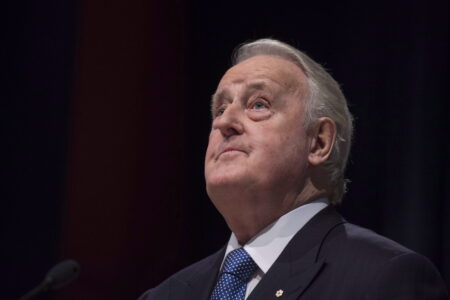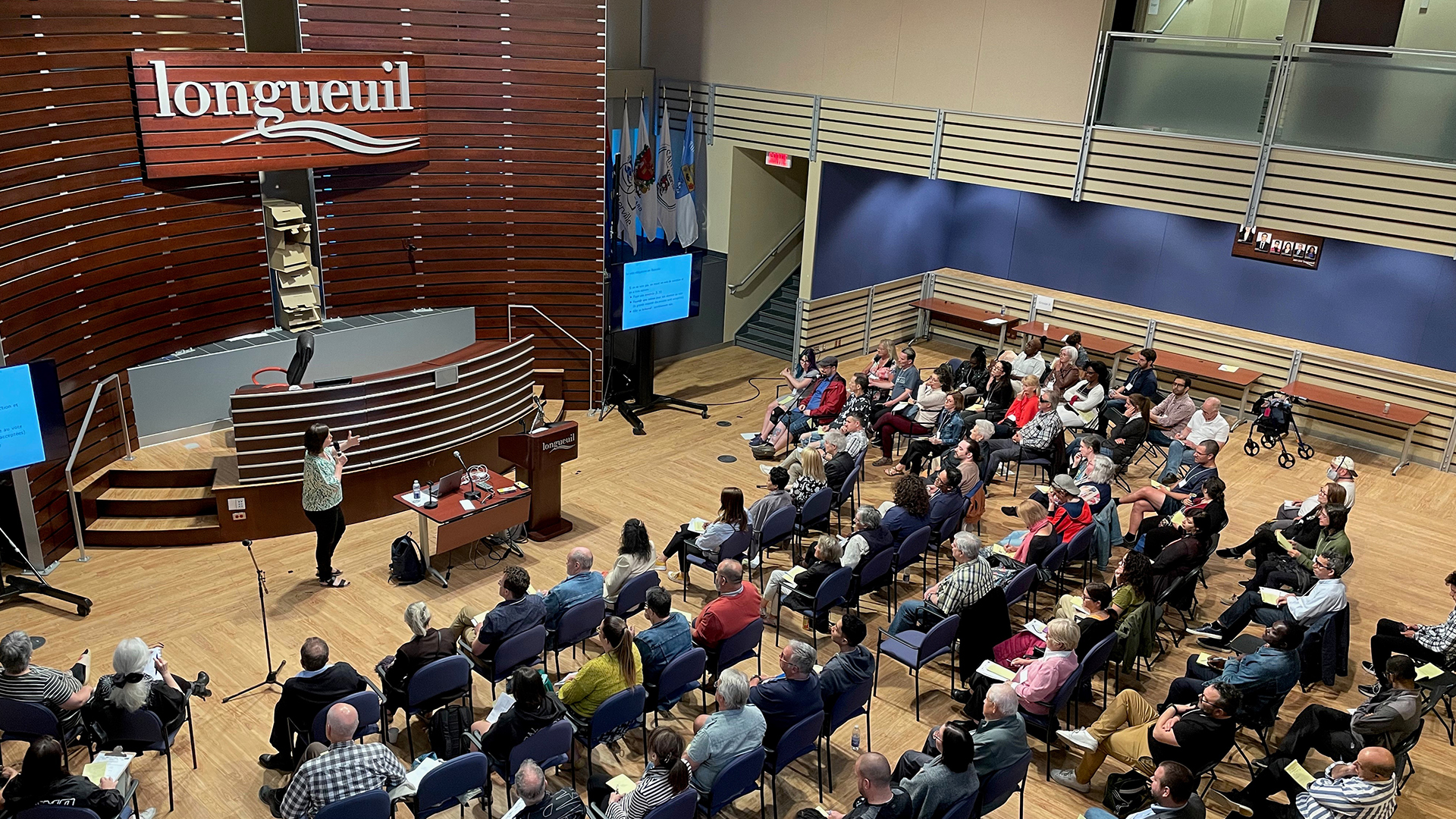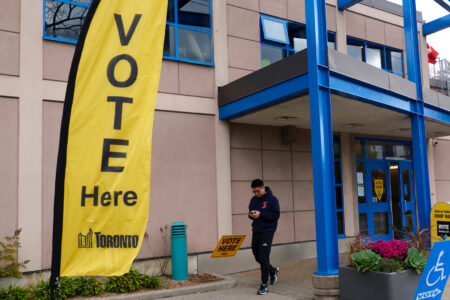
(Version française disponible ici)
The turnout rate for municipal elections in Quebec, as in much of Canada, is very low. The most recent round of municipal elections held in 2021 saw turnout of just 39 per cent in the province.
With a minority of eligible citizens voting, it is essential to ask how to make municipal democracy more dynamic and legitimate. To renew democracy, we need to think about electoral reforms and democratic innovations, but political discussions on this subject are often clouded by partisan interests. How can we avoid this trap and ensure that the voices of citizens are heard?
A citizen experience in Longueuil
To gain a better understanding of public opinion on democratic reform at the municipal level, we organized a citizens’ assembly in Longueuil in June 2023. The meeting of about 101 participants was held at City Hall, which lent a certain solemnity to the exercise. The participants greatly appreciated the deliberative exercise and were open to proposals for reform.
The event took place over a two-day weekend. This corresponds to the duration of the deliberative assemblies organised in several countries by political scientists James Fishkin and Robert Luskin. It is also the length of time devoted to most subjects by the Irish citizens’ assembly between 2016 and 2018.
The Longueuil assembly focused on four potential reforms: internet voting, compulsory voting, the right to vote for permanent residents (who do not yet have citizenship) and holding municipal elections at the same time as provincial elections. Our decision to cover these four reforms meant that deliberation on each of them was limited to half a day, or just over three hours.
Recruitment proved to be the most difficult aspect of our project. We were asking people to devote an entire weekend to this activity in exchange for financial compensation of $250. We started recruiting by mail, but we had to use social networks to reach our target of around 100 people. The group was finally representative in terms of gender and age, but did not include many people with lower education.
The deliberations took place in four stages for each of the four themes.
First, experts were asked to prepare simple, clear and balanced presentations for each theme. They explained the proposed reform, mentioned where it had been adopted, detailed how it would work in practice and gave the arguments for and against. We then had a question period.
We reminded participants several times that there was no right or wrong answer, that there were good arguments for and against each reform, and that we wanted them to form a personal and informed opinion based on the information provided to them. We asked them to also consider their own values.
Each presentation was followed by a discussion in small groups of around ten participants each, led by a facilitator. We then held a plenary session where participants could ask for further clarification or express their opinions. In the fourth and final stage, participants voted by secret ballot on each of the reforms.
Figure 1 shows the results of the votes. There was clear majority support for internet voting, giving permanent residents the right to vote, and holding municipal and provincial elections at the same time. There was also strong opposition to compulsory voting.
An experience worth repeating
Nearly all participants said they thoroughly enjoyed the experience. Among the 101 respondents who answered the survey that followed the meeting, 75 people said they were “very satisfied” with the overall process, 17 said they were “fairly satisfied” and only two were “not very satisfied”; no one said they were “not at all satisfied.” People listened attentively to the experts’ presentations, asked pertinent questions, exchanged views with their fellow participants, reflected, and finally voted – we have every reason to believe – in a reasoned manner.
Our decision to devote only half a day to each subject obviously limited the deliberations. However, we feel that people had sufficient time to inform themselves and reflect on the specific reforms that were presented to them. It should be stressed that we had chosen simple and precise questions. It would be difficult to apply our approach to highly technical or complex issues.
The main obstacle to recruitment was the considerable time commitment required – a full weekend. This obstacle is inherent in the citizens’ assembly, which requires people to take the time to inform themselves, reflect and exchange views if they want to form an informed opinion. However, we believe that recruitment would have been much easier if the event had only lasted one day.
All in all, we believe that such an exercise in citizen deliberation is highly desirable. Citizen deliberation is a valuable instrument of democracy that should play a greater role in consultation and decision-making processes – particularly when it comes to democratic reforms. Citizens can express themselves at elections, in opinion polls, through petitions and demonstrations.
Why not also invite them to express themselves in a setting where everyone is encouraged to listen to others and to inform themselves about the arguments for and against a policy before taking a position?
The full report can be consulted on the Discutons démocratie à Longueuil website.












